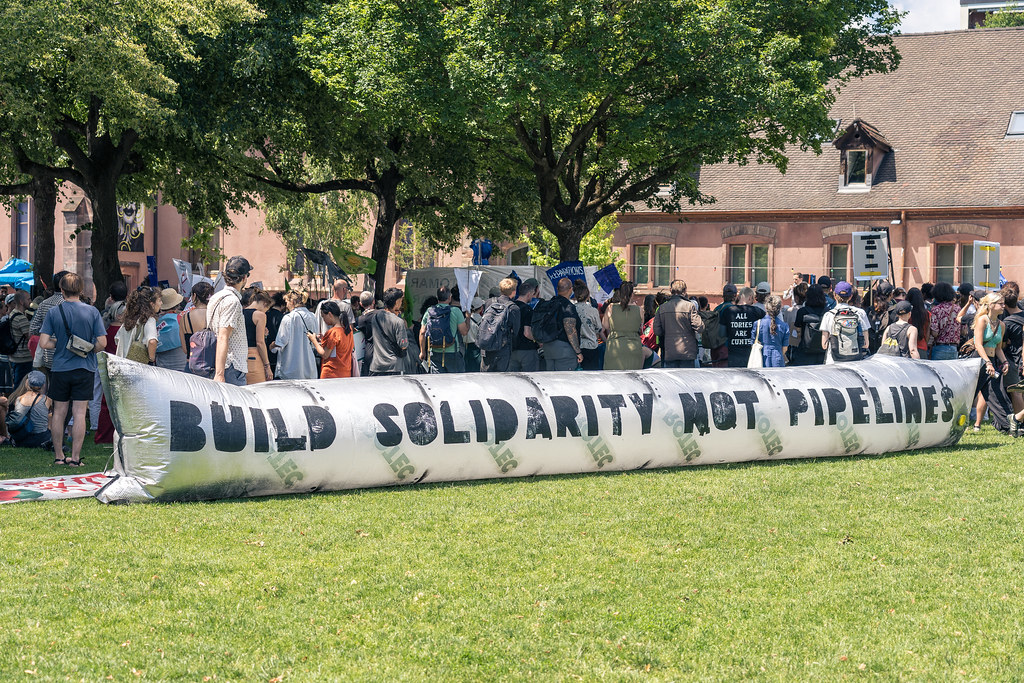The global financial system that we know today has been designed during the colonial period to support the wealth extraction from the colonies to the empires. The global financial system that we know today was designed during the colonial period, to organise the appropriation and extraction of the raw materials on which the prosperity of the colonial powers was based.
To this day, the pattern continues that multinational corporations extract wealth from formerly colonised countries with finance from banks and insurance companies from mostly the global north. The global north refers to a position of power and wealth in the system of the global economy today, as well as its history of plunder. Countries in Western Europe, the USA or Australia built their wealth through the exploitation of people and land elsewhere. Decolonising has to include acknowledging that past, re-distributing power and re-writing the rules that were established during that time and continue to impact us today.
Today, countries that became rich through colonial exploitation have disproportionate power in the institutions that govern the global economic and financial system like the International Monetary Fund, the World Bank and the Bank of International Settlements. This has for example allowed rich countries to use their position of power as creditors to dictate economic policy and cheapen the prices of labour and resources in debtor nations to their advantage, accumulating and concentrating even more capital. Every year, the global north drains commodities worth $2.2 trillion from the south – enough to end extreme poverty globally, fifteen times over.
Countries of the global south have long been calling for a more democratic distribution of power in the global financial system, which has recently gained renewed momentum with the Bridgetown Initiative brought forward by Barbados prime minister Mia Mottley. It would among others see the unjust debt of the countries hardest hit by climate breakdown cancelled and have the World Bank provide finance to the most climate-vulnerable countries that have done least to cause the crisis. The polluters that have caused the climate crisis need to pay their climate debt to those hardest hit.
At the same time, with growing concentration of capital, continued privatisation and widening inequalities, even in the richest countries the financial system is currently not working in the interest of most people. This became once again dramatically clear as Russia’s war against Ukraine and the rising gas prices have seen fossil fuel corporations and banks celebrate record profits, while the gas-driven inflation and rising bills have left many struggling to pay for even just the basic everyday necessities.
While we are impacted in different ways, the current design of the financial system does not work for our benefit but prioritises short-term profits for the few. We can change that.
Democratising and decolonising the financial system means redistributing power and wealth more equally and ensuring that it works in the shared interest of all of us, prioritising health and education, food sovereignty and social protection, labour rights and nature restoration. It also means to live in harmony with the living world that we are a part of, letting go of an economic model that depends on the hoarding of wealth and infinite extraction of resources. Instead we need to re-balance our economy so that wealth and power remains with people locally, ensuring that everyone can live a self-determined and healthy life.
If you want to get involved and join us to dismantle the current financial system, get in touch with us!
